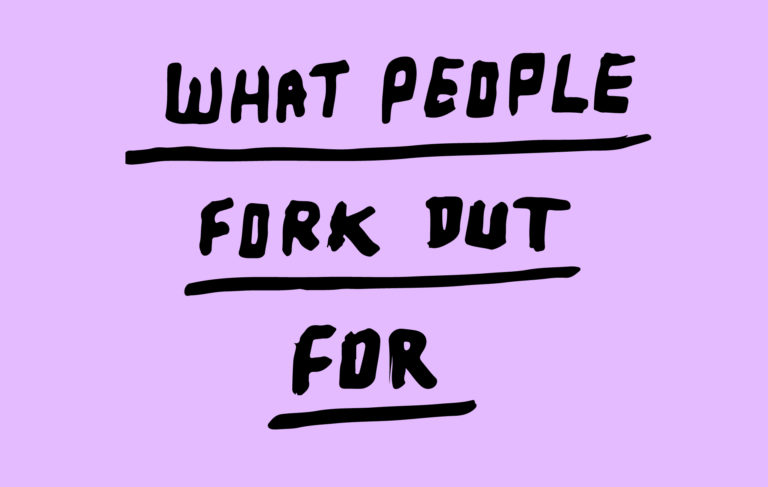Create, make, sell. Sing.
Berry Gordy Jr had been a professional boxer, US soldier and an unsuccessful record-shop owner.
But he found himself working in a Detroit car plant.
A monotonous job: not at all where the ambitious fledgling songwriter had pictured himself.
And during those tedious days in the Lincoln-Mercury plant, Gordy would watch the bare metal frames rolling down the line.
One after another, day after day.
As he worked, he wrote songs in his head.
A few of which he sold to Decca records.
Then he realised that the real money was in doing it for himself.
On 12 January 1959, fuelled by the encouragement of a young poet 10 years his junior one Smokey Robinson and an $800 loan from his family, Gordy set out on his own.
Turning the garage of his home on 2648 West Grand Boulevard into a recording studio.
The audacious 29-year-old affixed a sign proudly to the front of his house
'Hitsville USA'.
Launching a brand of music that combined the visceral roots of gospel and blues with pop sensibilities.
One that would appeal to mainstream pop lovers and discerning black-music lovers alike.
Arriving at the height of the civil rights movement in the early sixties, his African American-owned model of black capitalism, dropped black music into the heart of popular white culture.
Becoming an agent of social and cultural change.
Doing the same thing as Martin Luther King was doing on foot.
They knew they weren't just making music: they were making history.
Breaking down racial divides, uniting blacks and whites on previously divided dance floors.
Not just The Sound of Young America - the words proudly stamped on their record sleeves - but a worldwide phenomenon.
And they were prolific.
A 24-hour hit-making hothouse.
The songwriters would write: Smokey Robinson and the writing trio of HollandDozierHolland.
The talent would perform: Marvin Gaye, The Miracles, Martha and The Vandellas, Stevie Wonder, The Temptations, Diana Ross and The Supremes.
The in-house band would play usually the Funk Brothers, encouraged to lay down as many songs as possible in a session, because they were paid by the day.
All under one roof.
You'd turn up.
You'd do your stuff.
The songwriters would pick someone to sing their song: it might even be the person working behind the desk or a player from another band.
Just the right voice for just the right track.
Each track carefully considered prior to release, in 9am Quality Control meetings.
Songwriters and producers sometimes one and the same would pitch songs and cast votes.
If you were one minute late you wouldn't get in.
The competition was fierce, but so was the love.
Free from fear of repercussions.
Free to express themselves because of the atmosphere of safety in ideas.
The best songs won.
And were evaluated.
Chief engineer, Mike McClain, built a diminutive approximation of a tinny car radio.
Because as the people of this car manufacturing town knew only too well car after car rolled off the production line, each with a tinny-sounding radio.
And that it was on these radios that people would be listening to their music.
So they optimised their sound to suit.
Talent was managed and artists developed; trained to perform in only two places: Buckingham Palace and the White House.
Because if they could perform there, they could perform anywhere.
Records were pressed, sleeves designed, artwork printed and distribution managed.
All by the company.
Gordy, the inspirational leader, entrepreneur and talent developer, created a record label thats influenced everyone from The Beatles to hip-hop.
But his brilliance lay in where he got the inspiration for this hit-making hothouse.
He knew that looking beyond the familiar is often where innovation lies: taking an idea from one place and using it in another.
During those tedious days in the Lincoln-Mercury plant, Gordy would watch the bare metal frames rolling down the line.
One after another, day after day.
Coming off the end as brand spanking new cars.
So it struck him.
Why not an assembly line for music?
A place like a factory.
A place where a kid could walk in off the street unknown, and out the other door a star.
A place where talent would be honed and polished to the extent that theyd even be taught how to stand and sit.
A place like a factory, but more collaborative.
Avoiding the pitfalls of uniform consistency, but with the momentum of unrivalled continuity.
Taking an unrelenting manufacturing process, known as Fordism by many, but fusing it with genuine creativity and expression.
Producing songwriters as distinctive as the artists they produced.
Nurturing not just the creative talent, but engineers and corporate executives too.
Adept in the art of making things happen.
Putting the motor town of Detroit on the musical map for all time.
Motown: a portmanteau of motor and town.
And Berry Gordys philosophy
Make a good product, then make something similar and make it quick.
Sounds like its straight out of Silicon Valley.
As fresh today as it was more than fifty years ago.
Just like the music.
– DB
Subscribe to Squad

Get our annual printed newspaper plus our email digests full of inspiration, thoughts, tools and the interviews.
Subscribe
Are you selling a brand or a product?
Whether to focus on promoting a product (or service) or the brand is a question that often comes up with clients. Is it better to focus on the attributes and benefits of the product? Or the ethos and values of the company behind it?

What people fork out for
Fish and chips taste better at the seaside. It’s something many had a hunch about, but now it’s been proved. An Oxford psychologist, Professor Charles Spence, has coined the term “gastrophysics”. Through science and psychology, he has highlighted that the taste we experience in our mouths is the result of processes within our brains, being affected by other sensory influences.


